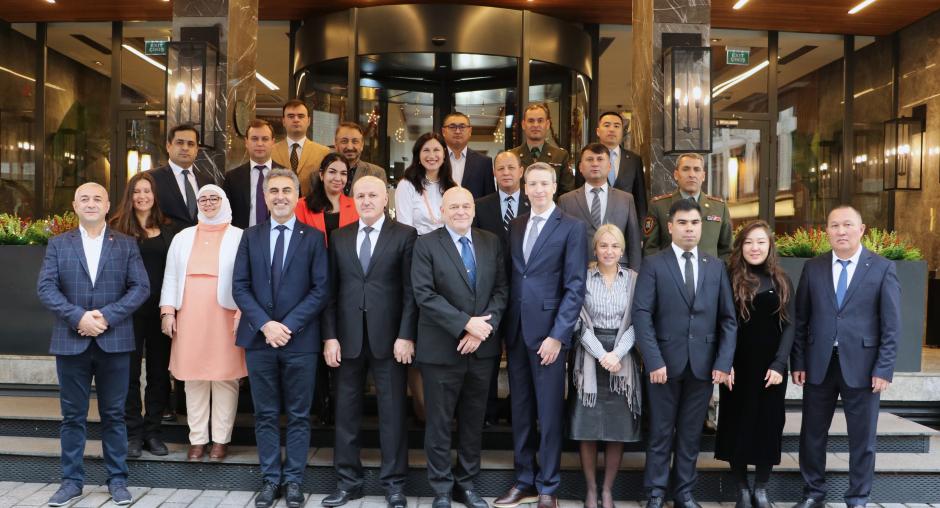OSCE supports the 2nd International Training Board on Explosive Hazards and Responses meeting in Istanbul

Regional co-operation and standardization of responses to explosive hazards can assist in reducing threats to human lives and property. The 2nd International Training Board meeting took place in Istanbul, Türkiye from 14-15 December 2023. Organized by the OSCE Programme Office in Dushanbe in collaboration with the OSCE's Conflict Prevention Centre, the meeting aimed to highlight the progress achieved by the OSCE's extra-budgetary project regional "Integrated Cooperation on Explosive Hazards Programme" implemented by the Programme Office in Dushanbe.
The meeting centred around discussing the roles, responsibilities, and intentions of current and future participants in the International Training Board on explosive hazards and responses. Participants addressed tasks related to explosive hazard reduction and response, training curricula, professional development of operational and educational staff, standards, and monitoring and evaluation programmes in Central Asia.
The crucial aspects of explosive hazard reduction and response systems at both the national and international levels in Central Asia were discussed. Participants explored ways to strengthen cross-border collaboration in systems and procedures.
Attention was also given to international and regional co-operation, emphasizing the need to fortify cross-border explosive hazard reduction and response systems. Participants acknowledged the instrumental role played by the OSCE in supporting countries in Central Asia, especially in response to risks stemming from instability in Afghanistan.
The meeting brought together 25 participants, including representatives from the Ministries of Defence of Kazakhstan, Kyrgyzstan, Tajikistan, and Turkmenistan, the Border Troops of Kyrgyzstan and Tajikistan, the US Embassy in Tajikistan, OSCE Offices in Vienna, Astana, and Dushanbe, as well as agencies such as Norwegian People`s Aid, UNDP and Tajikistan’s National Mine Action Centre.
The meeting concluded by recognizing the significance of partnerships and wider perspectives in achieving effective explosive hazard reduction and response. The Regional Explosive Hazards Training Centre was highlighted as a key player in training and professional development efforts, with plans for future advancements and in-kind contributions.
Moving forward, the shared commitment to enhancing national and international systems will foster safer environments and combat illicit trafficking of small arms and light weapons, ammunition, and explosives in Central Asia.
